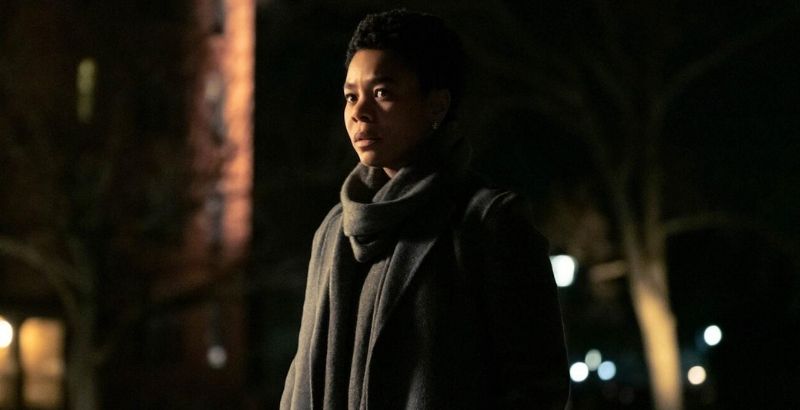
Legends are as much a part of institutions as the walls that hold them up or the people who create memories in them. Master looks at the impact legends have, the power we give them, and ultimately how we fit into them. Written and directed by Mariama Diallo, Master is a Prime Video original and stars Regina Hall, Zoe Renee, Talia Ryder, Talia Balsam, and Amber Gray.
A horror film, Master takes place at an elite New England university built on the site of a Salem-era gallows hill. There, three women strive to find their place. Gail Bishop (Regina Hall) steps into the position of “Master,” a dean of students, and discovers what lies behind the school’s immaculate facade. Jasmine Moore (Zoe Renee), a first-year student confronts a new home that is cold and unwelcoming. And finally, literature professor Liv Beckman (Amber Gray) faces off against colleagues who question her right to belong. Navigating politics and privilege, each woman encounters increasingly terrifying manifestations of the school’s haunted past and how those ghosts are still being created in the future.
I used to be an academic. I thought it was my calling. I was proud of attending a “public ivy” and thought that if I could grit my teeth enough through the racism and sexism that the academy was built on, I could thrive. But, I left it. The ghosts swallowed me whole and the new monsters that inherently racist academic cycle created helped ensure I gave up. Because of this, Master hits hard, incredibly so.
Through the three women, Diallo takes the audience through three perspectives of Black women in the academic cycle. Gail is the established one, the one who has made it through the system, Liv is trying to, and Jasmine is just now entering it. Master isn’t about big grand moments, it’s about the small ones that build over time to wound.
The microaggressions in a dorm room, to being a room full of white people scream-singing the n-word along to a song, or the librarian searching your bag and the one colleague who reminds everyone you’re not white like they are, even if it’s well-meaning. Even when Gail is looking through papers in her new home and discovers racist phrenology drawings among the former Master’s belongings, it’s clear that racism is as much a part of this university as “higher learning” is, and as many people of color in academia will tell you, its the truth. But of course, it’s the outright growing racist attacks on Jasmine that pull the film’s narrative along, bringing all of those parts together in the violence they all bring with them.
These realities that Black and brown students know while attending a university that was not built with them in mind build up and unsettle as much as the ominous legends of girls dying on the property or the witches who were killed in the past.
Diallo is an expert in merging the real horrors of academia with supernatural ones. She artfully crafts and experiences that hit hard. It showcases the pervasive misogynoir in academia, the fear of going to college and leaving home, and even with success, you can be in danger. Not only that, but Diallo’s visual style and ability to frame her scares make it something completely unnerving and special. In one moment, Jasmine’s arm is off of her bed, and a ghostly white hand scrapes her forearm. It’s subtle with no piercing strings to make you jump. Instead, Diallo lets the tension in the scenes meant to scare you build in waves.
This allows her to make a scene at a party where non-Black students are screaming the n-word along to a song that becomes menacing, aggressive, and dangerous. In other scenes, she layers visuals on top of each other slowly, like the emergence of bugs from a portrait. Diallo allows the tension to crawl over you. It is a big yes, but it is also growing and unassuming in the way her subject matter is as well. By using three women with three vantage points to tell this story, Diallo allows doubt and fear to form, while also reinforcing their different but shared experiences.
Diallo also takes the time in the third act to showcase how Black women are tasked to clean up the sins of the past. They’re used instead of empowered to succeed. It’s insidious, it’s pervasive, and in the film’s final moments, it’s always been here. Master is a hard pill to swallow, but it is a reality lived by Black women across academia, what brown and Black academics suffer through. As someone who was chewed up and spit out by higher ed, it hurts to watch. That said, it’s a necessary watch that contextualizes the ills of academia in a genre format that just works.
Master had its Texas Premiere at SXSW 2022 and is available now on Prime Video .
Master
-
Rating - 9/109/10
TL;DR
Master is, well, masterful. As someone who was chewed up and spit out by higher ed it hurts to watch. That said, it’s a necessary watch that contextualizes the ills of academia in a genre format that just works.






